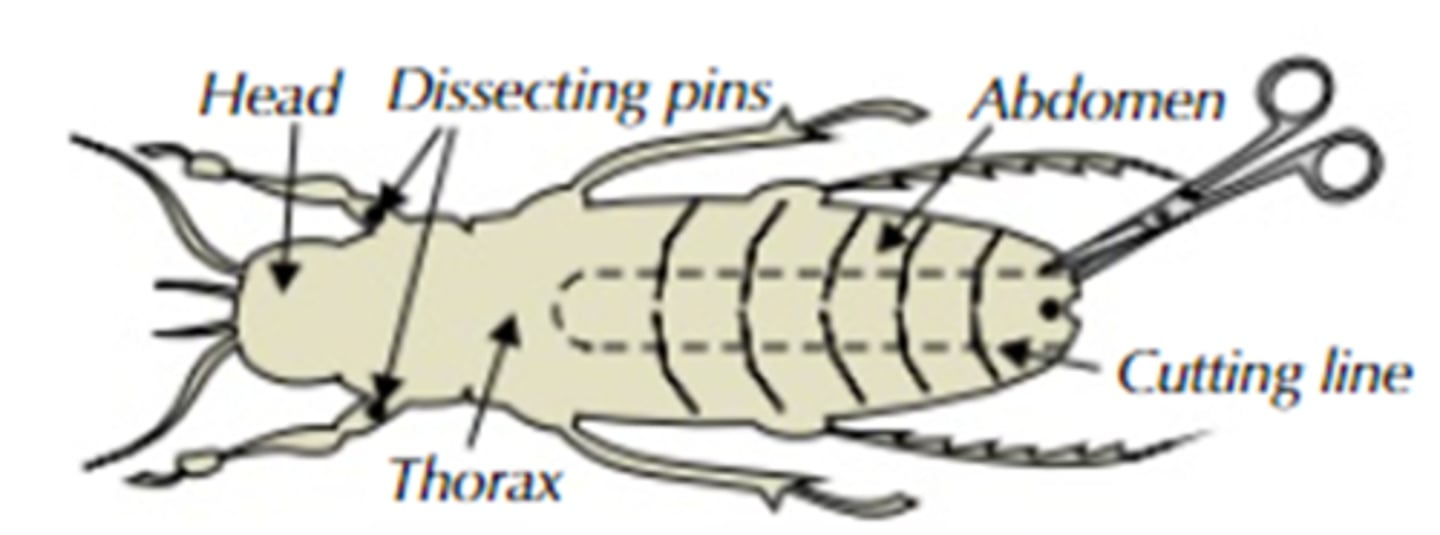Insects
1/12
There's no tags or description
Looks like no tags are added yet.
Name | Mastery | Learn | Test | Matching | Spaced |
|---|
No study sessions yet.
13 Terms
Insects have small openings on the side. What are they called?
Spiracles
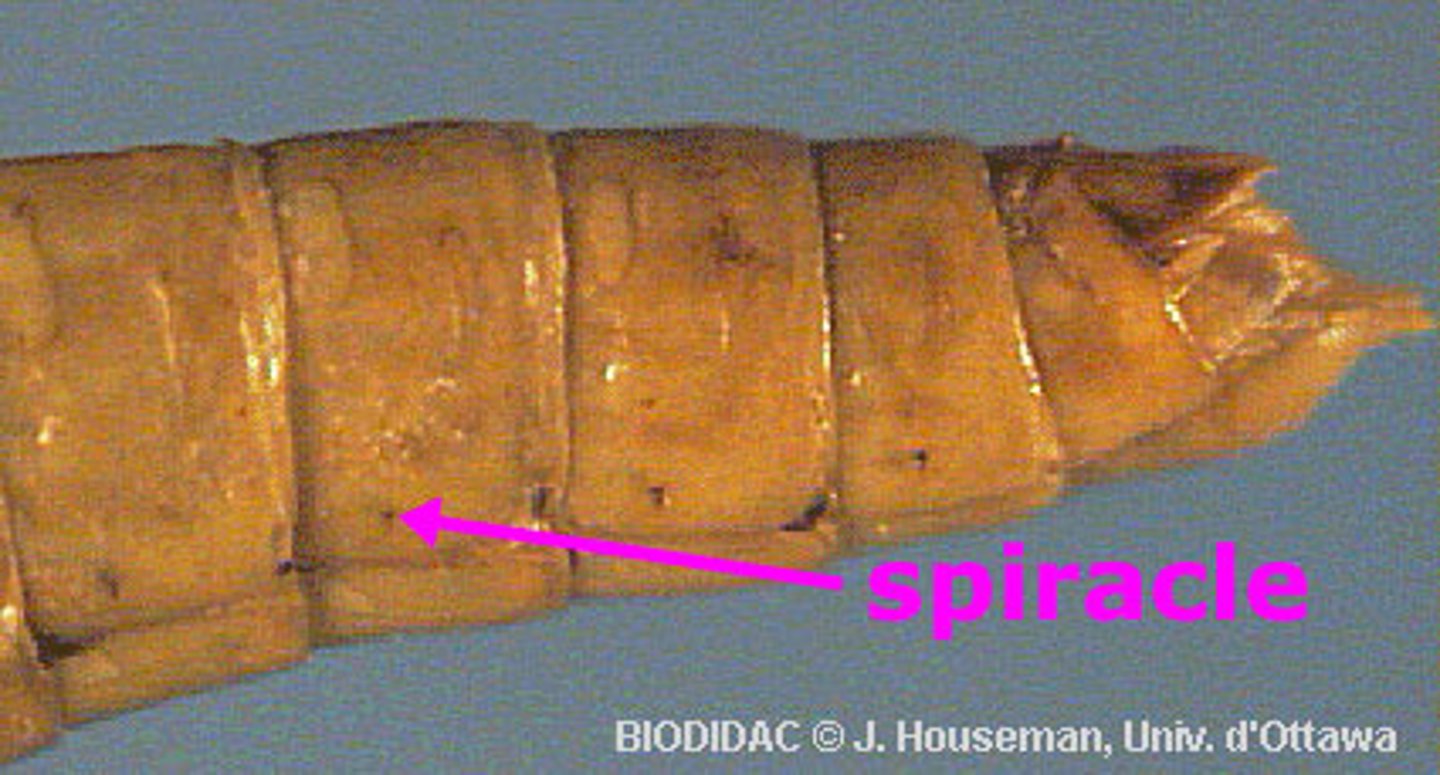
What do spiracles do?
Allow for diffusion of oxygen into the organism and carbon dioxide out of the organism.
What are spiracles controlled by?
Sphincter muscles
What does the spiracle lead to?
Trachea
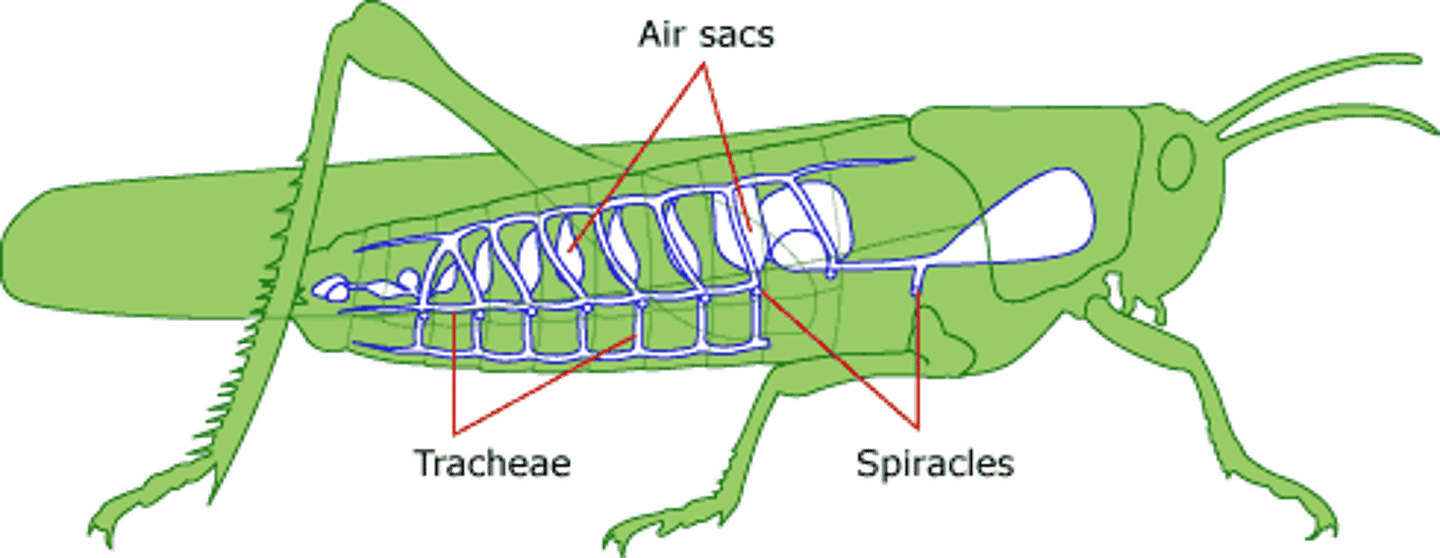
What are trachea made of?
Spirals of chitin
What do trachea lead to?
Tracheoles
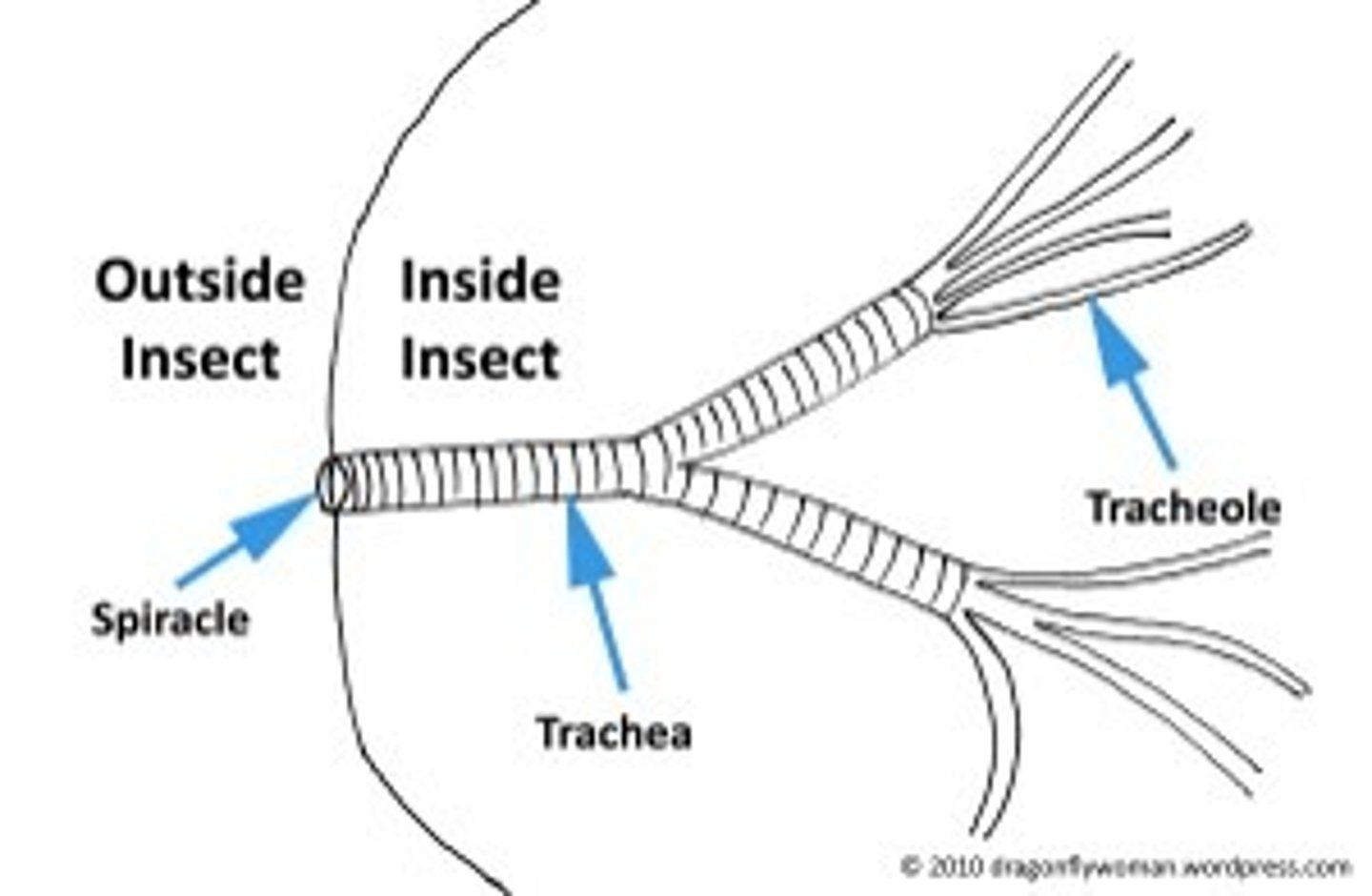
What are tracheoles, and what do they do?
Single elongated cells, which have contact with every cell. There's no chitin, so they are freely permeable to gases
They delivers air directly to the cells
This is where most of the gaseous exchange takes place between the air and the respiring cells
What are tracheoles filled with?
Tracheal fluid
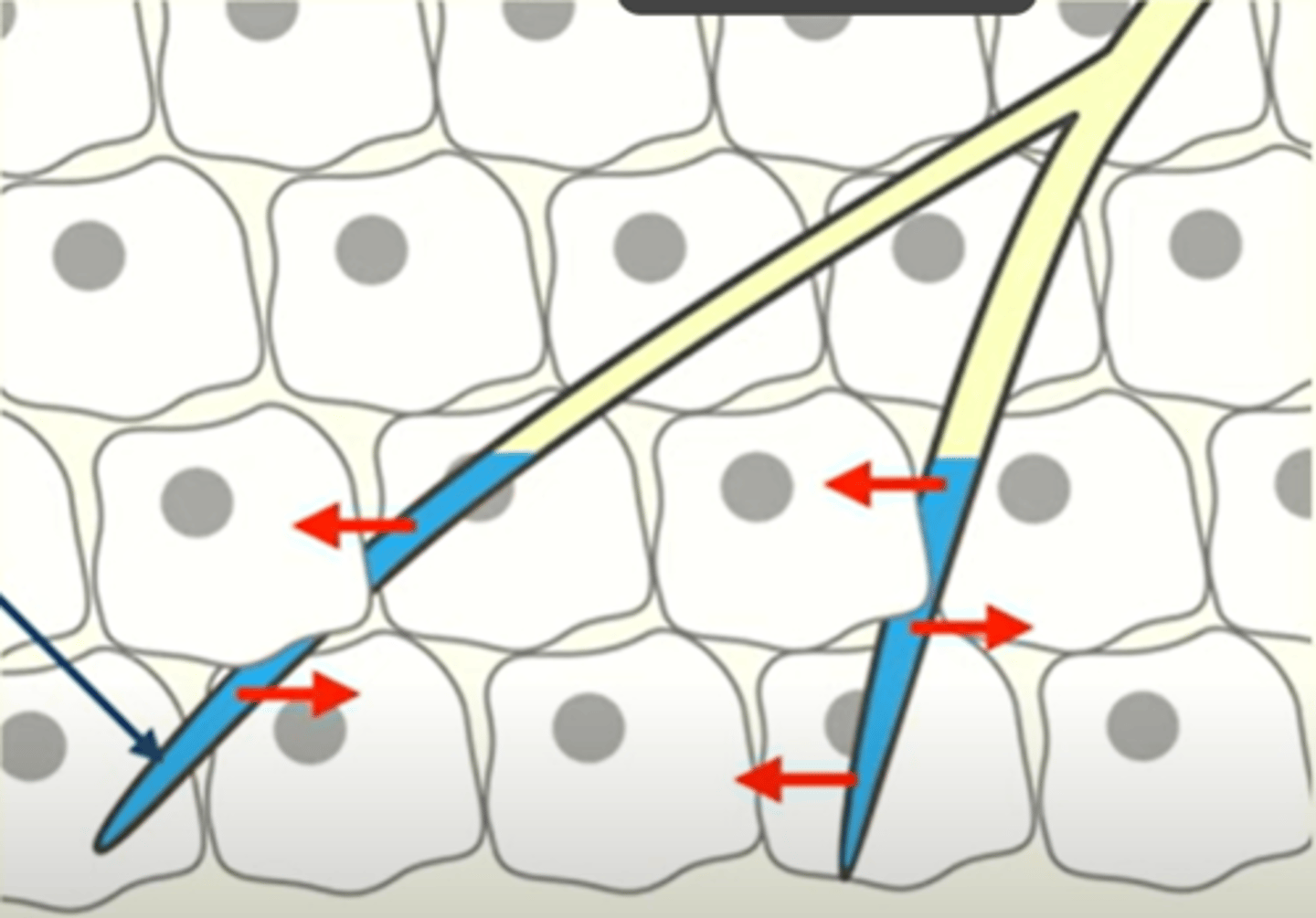
Tracheal fluid Process in Insects
During rest, tracheal fluid is present within the tracheoles in the muscles.
When the insect becomes more active, muscle contractions increase, leading to a higher rate of aerobic respiration and a greater demand for oxygen.
If the oxygen supply is insufficient, the insect may temporarily switch to anaerobic respiration
Lactic acid is then produced and lowers the pH of the surround tissue fluid.
The reduced pH causes tracheal fluid to leave the tracheoles and enter the muscle cells by osmosis
With less fluid in the tracheoles, there is a shorter diffusion distance for oxygen from the air in the tracheal system to the muscle cells.
This allows more oxygen to diffuse directly into the muscle fibres, helping to meet the increased oxygen demand and support aerobic respiration more effectively.
Adaptations to aid ventilation in Insects
Pumping movements of the thorax and abdomen
Selective opening and closing of the spiracles
Air reserves
How does the pumping movements of the thorax and abdomen aid ventilation in insects?
Air is actively pumped into the system
These muscular pumping movements change the volume of the body cavity, creating pressure differences
Air reserves in insects
When the insect moves, it helps to change the volume of the body cavity and therefore causes changes in the pressure, therefore helping to draw air in and out
Dissecting an insect
Remove the exoskeleton to see the spiracles
